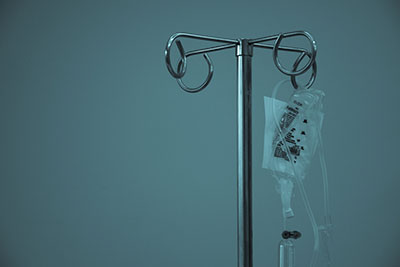Healthcare Markets and Regulations
Prices and Quality of Care in the U.S. Hospital Market
 Rising prices in the U.S. hospital market could stem from multiple factors, including the clustering of healthcare providers, hospital consolidation, or the willingness of patients to pay for quality of care. In the Journal of Health Economics, IPR associates healthcare economist Craig Garthwaite and strategy professor Amanda Starc and Christopher Ody investigate the relationship between hospital prices and quality. They look at the quality investments hospitals make and their effects on revenue. The researchers examined over 2,200 general acute care hospitals that filed Medicare’s Hospital Cost reports for 2012, using demographic data from the American Community Survey (ACS) and the 2010 Census to estimate the share of patients at each hospital with private insurance, public insurance, or who were uninsured. The authors measured quality as a combination of factors, including emergency wait time, technology adoption, and a composite of Medicare Hospital Compare scores that integrates outcome measures, process measures, and patient experience scores. The study finds that hospitals with a higher share of potential patients who are privately insured perform better on quality measures, which implies that hospitals are investing in quality if they are more likely to serve privately insured patients, who pay higher prices than Medicare. These results suggest that changes to Medicare reimbursement policies will affect hospitals’ decisions about quality, and that there may be a quality tradeoff if policies such as Medicare for All or broader public options are adopted. Garthwaite is the Herman Smith Research Professor in Hospital and Health Services Management.
Rising prices in the U.S. hospital market could stem from multiple factors, including the clustering of healthcare providers, hospital consolidation, or the willingness of patients to pay for quality of care. In the Journal of Health Economics, IPR associates healthcare economist Craig Garthwaite and strategy professor Amanda Starc and Christopher Ody investigate the relationship between hospital prices and quality. They look at the quality investments hospitals make and their effects on revenue. The researchers examined over 2,200 general acute care hospitals that filed Medicare’s Hospital Cost reports for 2012, using demographic data from the American Community Survey (ACS) and the 2010 Census to estimate the share of patients at each hospital with private insurance, public insurance, or who were uninsured. The authors measured quality as a combination of factors, including emergency wait time, technology adoption, and a composite of Medicare Hospital Compare scores that integrates outcome measures, process measures, and patient experience scores. The study finds that hospitals with a higher share of potential patients who are privately insured perform better on quality measures, which implies that hospitals are investing in quality if they are more likely to serve privately insured patients, who pay higher prices than Medicare. These results suggest that changes to Medicare reimbursement policies will affect hospitals’ decisions about quality, and that there may be a quality tradeoff if policies such as Medicare for All or broader public options are adopted. Garthwaite is the Herman Smith Research Professor in Hospital and Health Services Management.

